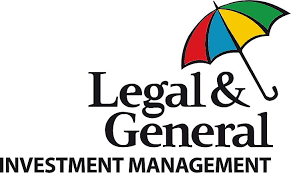What is short-term alternative finance, and can it help improve member outcomes? We investigate what this little-known asset class can do for DC.
Even before the Mansion House Compact, illiquid assets were a hot topic for investors. In the context of the UK’s defined contribution (DC) market, a growing number of asset classes in this space may have the potential to enhance member outcomes.
For example, private markets offer an abundance of strategies that may work for DC portfolios at different stages of members’ investment journeys. However, differentiating ‘illiquid’ from ‘not-so-illiquid’ strategies and understanding the role they can play within a DC portfolio are critical in determining their success.
What is short-term alternative finance?
The term ‘short-term alternative finance’ covers a multitude of opportunities. Examples include:
Capital call facilities: short-term funding to private investment funds to bridge the time between when an investment is made by the fund and when capital contributions are received from investors to finance that investment. The loans, which help private funds smooth their drawdown process, are secured against legally binding limited partner commitments and fund assets.
Supply-chain finance: whereby a supplier of goods sells its invoices at a discount in order to receive immediate payment and optimises its working capital position. Supply-chain financing allows the supplier to secure lower cost financing, based on the credit rating of the buyer, which is typically a larger investment-grade corporate. The buyer is able to negotiate better terms from the seller, such as extended payment terms.
Asset-backed financing: funding is provided to a company, backed by their balance-sheet assets, including short-term investments, inventory and accounts receivable. Asset-backed financing is most often used when a borrower needs a short-term cash loan or working capital to purchase assets and/or enter into leases.
On good terms
Although past performance is not a guide to the future, returns from short-term alternative finance have historically been largely uncorrelated with the broader financial market. This may offer DC members valuable diversification and capital preservation benefits, in our view. The short-term nature of the underlying loans (typically less than one year) means that cash can be returned to the investor over a short period.
The space has been dominated by banks historically, but bank retrenchment over recent years, as a result of regulatory pressure, has enabled other investors to fill the void. The underlying borrowers are generally investment-grade companies[1] and often global in nature. This may limit credit risk, and the complexity and illiquidity of the asset class could, we believe, allow investors the opportunity to benefit from a meaningful premium and the potential for reduced volatility over similar public assets.
The retirement conundrum
DC schemes struggle with the ‘retirement conundrum’; the question of when members are going to retire, and what they will do along the way. In practice, there is a huge variety of retirement behaviours, which continuously evolve over time.
Given that most members use a lifestyle or target-date investment approach, the make-up of their investments changes based on their target retirement age, and typically de-risks closer to the point of retirement. We know members rarely change the ‘default’ retirement age their investments are targeting, but their actual retirement age may differ significantly. De-risking too early, or too late, can have significant consequences for member outcomes.
Investments that are neatly aligned to different behaviours, that increase flexibility as the range of potential retirement ages approaches are crucial in meeting members’ needs. Short-term alternative finance may help tick these boxes. In our next blog, we will home in on where in the DC lifecycle these assets come into their own.
[1] Examples include well-known auto manufacturers and large supermarkets.

